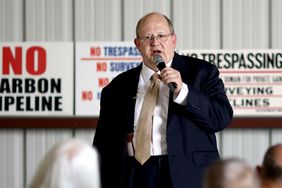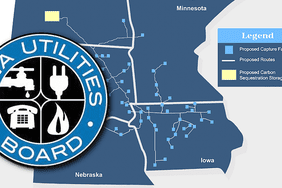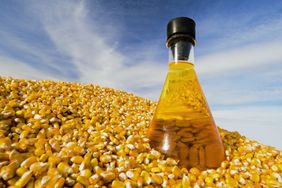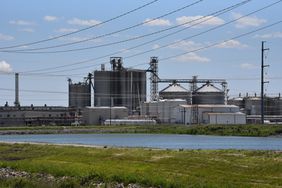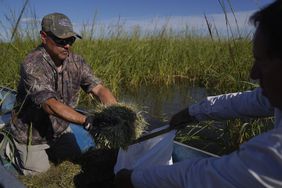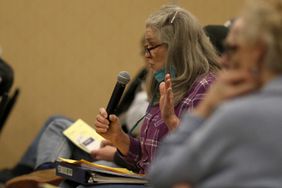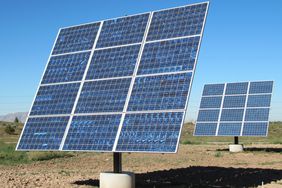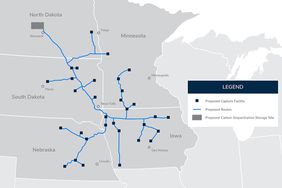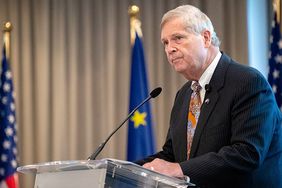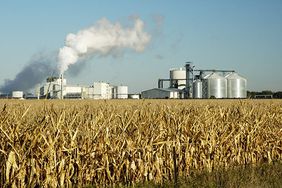:max_bytes(150000):strip_icc()/P4B-Gullickson-Cereal20rye-1-2000-ba4eef86515a4e7fb7c874362683b182.jpg)
BASF has announced a program that allows farmers to track and profit from practices reducing carbon dioxide emissions. Its Global Carbon Farming Program will support BASF Agricultural Solutions' commitment to reduce the carbon footprint per ton of crop produced by 30% by 2030 in wheat, soy, rice, canola, and corn, say BASF officials. BASF will launch its program in phases starting in 2022.
The Global Carbon Farming Program will promote sustainable agricultural practices and foster the best use of BASF's holistic portfolio for farmers, say BASF officials. This includes its seeds, traits, and chemical, biological, and digital farming tools and fertilizer management solutions. The program will be underpinned by sustainability tools for directing and assessing improvements helping farmers to make balanced decisions toward improved sustainability contributions, say BASF officials. It will help farmers reduce on-farm emissions and sequester more carbon into the soil, they add.
In addition, BASF will build the global framework to allow farmers to generate carbon credits from recognized certifiers that will lead to second revenue streams from their carbon reduction efforts, say company officials.
"The launch of our Global Carbon Farming Program is a testament to our strong commitment to sustainable agriculture. It will enable farmers worldwide to increase the health of their soils, reduce emissions, sequester carbon and – at the same time – be rewarded for their sustainability efforts to combat climate change," said Vincent Gros, president of BASF agricultural solutions, in a news release.
BASF Agricultural Solutions recently started its first multiyear field trials. They are focused on sustainable agricultural practices, soil carbon sequestration, and reduction of emissions at farm level. BASF officials say the results of the trials will lead to offers that allow farmers to capture synergies from BASF technologies that include its Xarvio digital farming platform and the use of its sustainability assessment tool, AgBalance. This assesses the data and derives informed decisions to improve sustainability.
In 2022, BASF will expand existing customer and value chain cooperation and actively seek new partnerships to encompass carbon management, say BASF officials.
